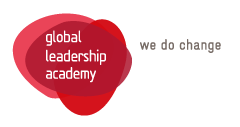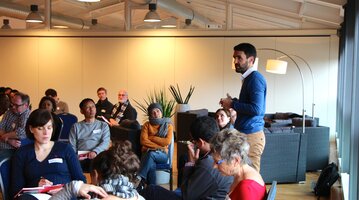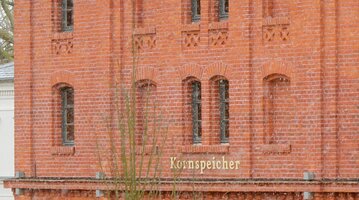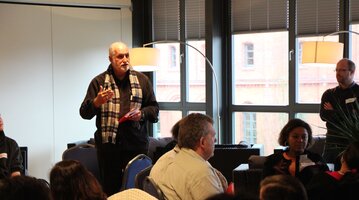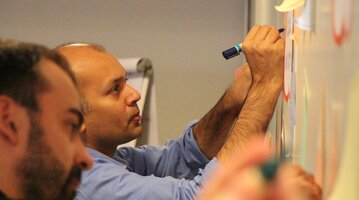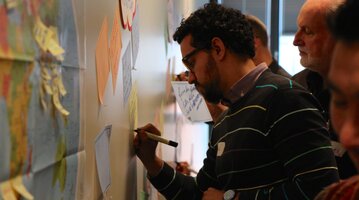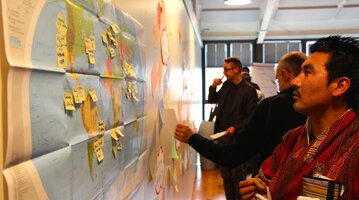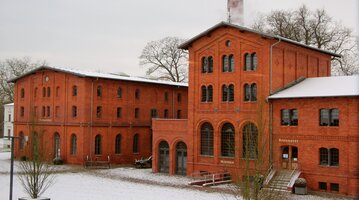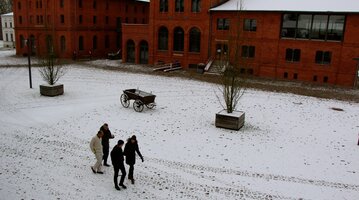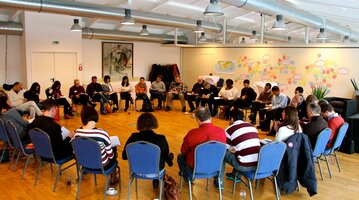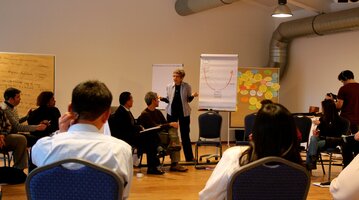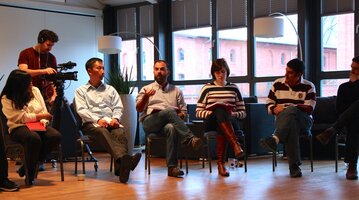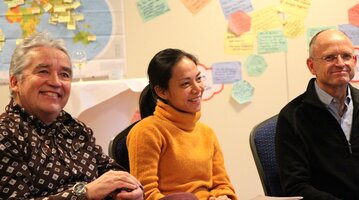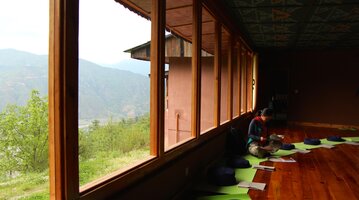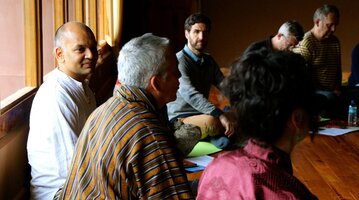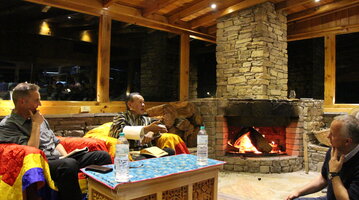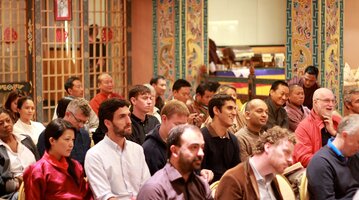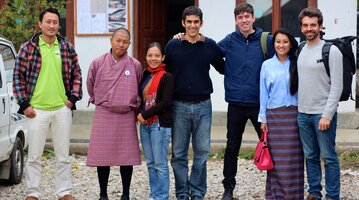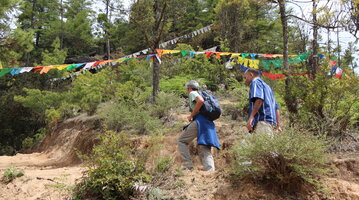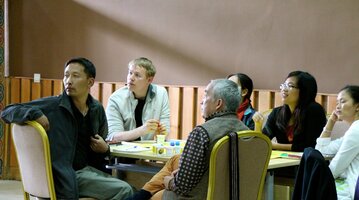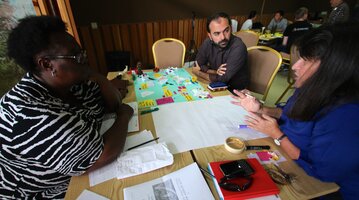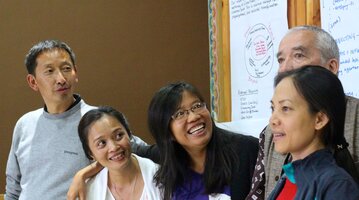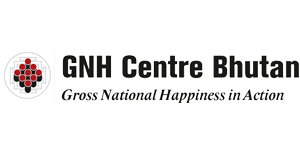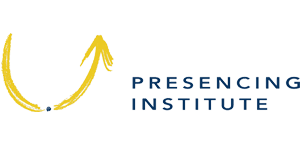Global Wellbeing Lab 2.0
Transforming Society and the Economy
Despite many approaches for sophisticated and accurate measures of societal progress that go beyond GDP and reorient our global community towards wellbeing and sustainability, the actual impact on governmental policies and business strategies has been limited.
Even if a government or business were to adopt wellbeing and sustainability principles, without a strong shift in mindset and consciousness this would not have a deep impact. While a number of promising initiatives are emerging around the globe, little collective momentum has yet been generated.
The Global Wellbeing Lab 2.0 is an initiative to fill this gap and to advance new ways of generating and measuring wellbeing at multiple levels in society.
Dates and Locations
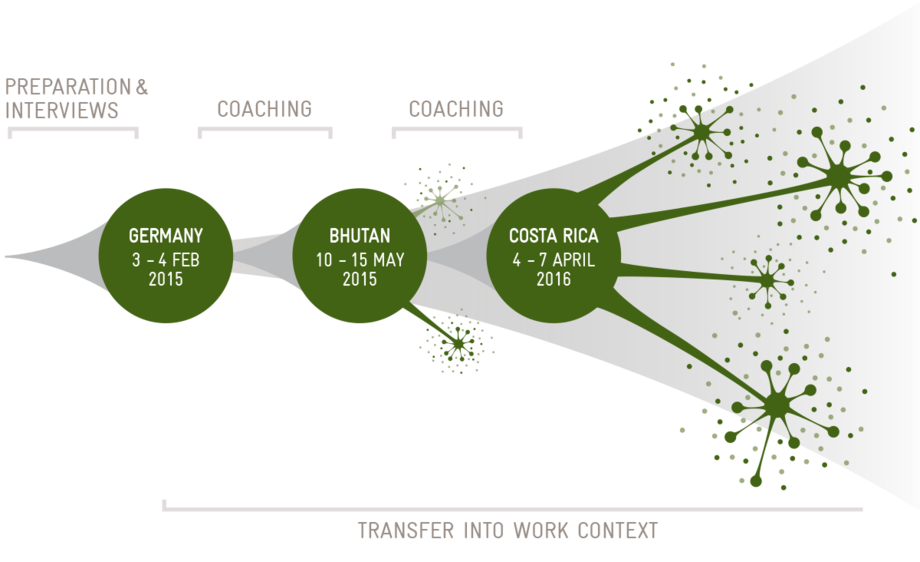
“I’ve been completely surprised by what happened as a result of our Global Wellbeing Lab meeting in Bhutan in a way that I still don’t have the language or words to understand. Surprised by what happens when you participate in a process bigger than yourself and how you lead differently. I’m personally as an individual, as a practitioner, very different than I was before we started this journey”
Louise van Rhyn, Partners for Possibility, South Africa
25
Participants
The 25 change agents (70% male, 30% female) came from the business sector, government, academia and civil society. Organizations represented included the Ministry of Science, Technology, and Telecommunications (Costa Rica), Action For the City (Vietnam), Public Health England, Google (Ireland), Eileen Fisher Inc. (USA) and Nelson Mandela Children’s Hospital Trust (South Africa).
9
Countries
South Africa, Brazil, Costa Rica, USA, Denmark, Sweden, Great Britain, Bhutan, Vietnam
Lab Impressions
The Process
The Global Wellbeing Lab 2.0 convened 25 change agents (70 % male, 30 % female) from around the world: South Africa, Brazil, Costa Rica, the U.S., Denmark, Sweden, Great Britain, Bhutan, and Vietnam. Participants came from the business sector, government, academia and civil society. Organizations represented included the Ministry of Science, Technology, and Telecommunications (Costa Rica), Action For the City (Vietnam), Public Health England, Google (Ireland), Eileen Fisher Inc. (USA) and Nelson Mandela Children’s Hospital Trust (South Africa).
The Lab was a continuation of the Global Wellbeing Lab 1.0, which started in 2013 with a cohort of 25 international leaders and change agents, an action-learning platform, co-created by the GIZ Global Leadership Academy, the Presencing Institute and the Gross National Happiness Centre (Bhutan). Its aim was to advance new ways of generating and measuring wellbeing at multiple levels in society.
The Global Wellbeing Lab 2.0 was designed on the principles of Theory U – an innovation process that individuals and groups can use to suspend habitual ways of paying attention, access deeper sources of knowing, and explore the future they want to create through rapid-cycle prototyping. The group embarked on an innovation journey that unfolded in five phases:
In the first Lab meeting in Berlin (3 – 4 February 2015), exchanges took place to uncover common intent on the issue of societal wellbeing, the relationships amongst participants were built up, and the local learning journeys were prepared within the regional clusters. During March and April 2015, Lab participants went on self-organized learning journeys in their respective region. Each group decided what aspect of wellbeing they wanted to explore, and identified hotspots of innovation in their own region they could visit to connect with key innovators, see and feel these people’s realities, and experience emerging solutions that could improve wellbeing for all stakeholders in a given context.
The Lab meeting in Bhutan (10 – 15 May 2015) was designed to explore Gross National Happiness (GNH) as one local adaption of a new development paradigm, reconnect individually to inner drivers of change and collaboratively evolving various prototype initiatives. Over the next eleven months, and accompanied by facilitators and peers, participants took their prototyping ideas further in their respective home context to adapt and scale them.
In the concluding Lab meeting in Costa Rica (4 – 7 April 2016), participants explored emerging prototype initiatives, shared lessons learnt, and reached out collectively to inform and inspire others through a public event, the Forum on Collaborative Leadership (7 – 8 April 2016) with around 120 people attending, among them the vice-president of Costa Rica Ana Helena Chacón Echeverría, members of parliament and business leaders.
Impact
Outcomes of the Global Wellbeing Lab 2.0 emerge on several levels: New organisational initiatives, spinoffs from the process of prototyping new initiatives, new directions personally and organisationally, and an ongoing influence in participants’ extended networks.
For a full documentation, please visit the Lab's own website at www.globalwellbeinglab.org
Stories of change
Robert Axelsson is a climate change strategist at the County Administrative Board of Västmanland, Sweden. He is also a chairman of the Board of the Western Visayas Integrated Learning Centre at San Joaquin, Iloilo, Philippines to deepen his engagement both for the environmennt and for the life-long learning.
After having served as the Director of Innovation at the Costa Rican Ministry of Science, Technology and Telecommunications, David Bullón Patton now dedicates his new initiative Micelio to advancing public service through innovation, cooperation and mindful leadership.
Louise van Rhyn is a social entrepreneur whose purpose in life is to create a better future. With over 20 years’ experience as a change practitioner Louise believes that the world’s huge intractable problems can be solved through cross-sector collaboration. She took up the cause of improving South Africa’s education system by introducing co-learning partnerships between school principals and business leaders.
Among a lot of other things, Nipun Mehta is the founder of ServiceSpace.org, a community that connects volunteers and their projects around the world and today has over 500,000 members.
Maja Göpel is Secretary General of the German Advisory Council on Global Change. The role of paradigm shifts as strategic leverage points is crucial to her work.
Robert Axelsson is a climate change strategist at the County Administrative Board of Västmanland, Sweden. He is also a chairman of the Board of the Western Visayas Integrated Learning Centre on the Philippines.
examples of prototypes developed in the Global Wellbeing Lab 2.0
Contributing to a ”Civic Learning Ecosystem” based on broader social and environmental values, such as those included in the GNH concept, Lab participant Fredrik Bjork (Malmö, Sweden) has developed a conscious dialogue space – Conversatories – that brings together diverse actors and people in a learning atmosphere. More than 20 such events have taken place already in Malmö, elsewhere in Sweden and in Italy.
A Flourishing South Africa – multiple activities aimed at revitalising the national vision 2030 and Ubuntu as a powerful connection point for South African society. Lab participant Louise van Rhyn and colleagues have run a series of Business in Education forums linking their work to Vision 2030 as well as the SDGs – efforts they say would not have happened without the Lab. At least 1,200 people have been impacted by this commitment to Vision 2030.
“How do we as an anchor institution use our $16B in annual procurement to drive change? Our procurement folks started with the premise of saying we can save a few percent by buying more via national contracts, but now they’re lighting up around the possibility of localising our spend, and help spin the economic flywheel of green jobs and equitable wealth creation in the communities where we provide care services.”
Tyler Norris, vice president of Total Health Partnerships at Kaiser Permanente
Our Partners
We implement all our programmes in cooperation with our internationally renowned partners with whom we share our passion for dialogue and change and our commitment to high quality standards.
